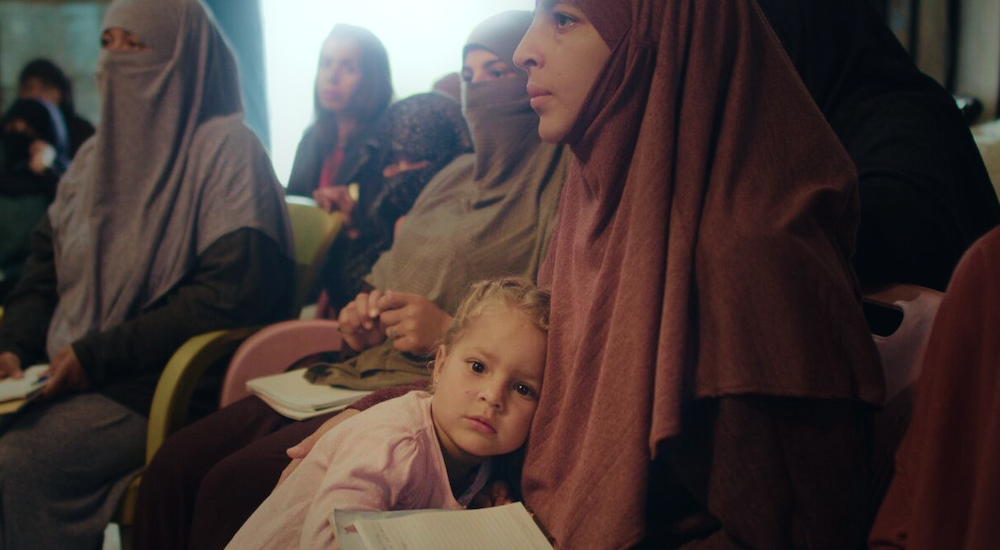Wars usually involve labeling the good guys and the bad guys, depending on which side you’re on, of course. When ISIS started making the news, it seemed pretty obvious that a group determined on killing innocent people on behalf of their cause were the bad guys. While we mostly saw truckloads of men, armed to the teeth in the desert on the evening news, ISIS had figured out how to bring war propaganda into the twenty-first century. ISIS was on social media, and they were so good at it that women and men from around the world were willingly flying to Syria to join the cause.
The Return: Life After ISIS is the rare case of a documentary not here to lecture, but to tell an infinitely nuanced story of a few women who chose to join ISIS and, with ISIS in tatters, must figure out what to do next. Most of these women are from Western countries like the US, Canada, UK, Germany, and the Netherlands. In particular, the stories of Shamima Begum (UK) and Hoda Muthana (US) become worldwide news when their countries refuse to take them back after the fall of ISIS. We meet all the women at a refugee camp, where they meet with a Kurdish women’s rights activist determined to help these women process what they’ve been through in the last few years.
Through sit-down interviews with each woman, we learn their stories of how someone could be radicalized enough to run off and join a terrorist group. A pattern emerges with most, where their intense religious faith combines with a belief that they must do all they can to help their fellow Muslims suffering in Syria. Their social media feeds are flooded with propaganda, urging them to come to Syria and make a difference, be a part of something bigger than themselves. It’s a tactic reminiscent of recruiting cult members. The women are quick to blame the siren song of recruiters and their inability to tell the difference between fake news produced by ISIS and real news. The zealousness became so intense that American citizen Muthana spent her time as a teenager tweeting angrily about how Americans deserved to die. British citizen Begum gleefully ran away at 15 with two friends to Syria, excited about the promises waiting for them in a foreign land.
These interviews are candid and intimate, letting these girls tell their stories in their own words. They openly discuss how their follies of youth shattered upon arrival, when their dreams of helping others withered into choosing between an arranged marriage or a prison. “I was expecting a happy place with Muslims…It was hell on Earth, really.” It’s a riveting tale and one that lied hidden beneath television reels of niqab-clad women in the desolate Syrian landscape. Director Alba Sotorro Clua gives them room to breathe and to explain the complexities of what’s happened to them, in direct contrast to the aggressive, bullying interviews other press outlets have done.
Covering over two years in this refugee camp, it’s easy to see that life without ISIS has not made their lives any easier. Most of them have lost friends, husbands, and children and many just want to go back West. That decision is derided both by more radicalized women at the camp, who threaten to burn their tents down, and their governments back home, who overwhelmingly want to strip them of their citizenship. Even with their side of the story being told, it’s difficult to reconcile it with the fact that they so intensely believed in a cause that killed and tortured so many.
The Return: Life After ISIS and its subjects show how much one decision can change your life. It provides context and insight into a segment of the population previously silenced. It may even extend the sympathetic hand a little too far. Still, it’s a compelling tale that weaves youth, propaganda, violence, trauma, and politics into a film you won’t forget.

